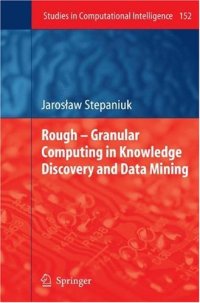
Ebook: Computational Intelligence in Integrated Airline Scheduling
Author: Tobias Grosche (auth.)
- Genre: Mathematics // Computational Mathematics
- Tags: Appl.Mathematics/Computational Methods of Engineering, Artificial Intelligence (incl. Robotics), Organization/Planning, Automotive Engineering
- Series: Studies in Computational Intelligence 173
- Year: 2009
- Publisher: Springer-Verlag Berlin Heidelberg
- City: New York
- Edition: 1
- Language: English
- pdf
An airline schedule represents the central planning element of each airline. In general, the objective of airline schedule optimization is to find the airline schedule that maximizes operating profit. This planning task is not only the most important but also the most complex task an airline is confronted with. Until now, this task is performed by dividing the overall planning problem into smaller and less complex subproblems that are solved separately in a sequence. However, this procedure is only of minor capability to deal with interdependencies between the subproblems, resulting in less profitable schedules than those being possible with an approach solving the airline schedule optimization problem in one step. In this work, two planning approaches for integrated airline scheduling are presented. One approach follows the traditional sequential approach: existing models from literature for individual subproblems are implemented and enhanced in an overall iterative routine allowing to construct airline schedules from scratch. The other planning appraoch represents a truly simultaneous airline scheduling: using metaheuristics, airline schedules are processed and optimized at once without a separation into different optimization steps for its subproblems.
The book "Rough-Granular Computing in Knowledge Discovery and Data Mining" written by Professor Jaroslaw Stepaniuk is dedicated to methods based on a combination of the following three closely related and rapidly growing areas: granular computing, rough sets, and knowledge discovery and data mining (KDD). In the book, the KDD foundations based on the rough set approach and granular computing are discussed together with illustrative applications. In searching for relevant patterns or in inducing (constructing) classifiers in KDD, different kinds of granules are modeled. In this modeling process, granules called approximation spaces play a special rule. Approximation spaces are defined by neighborhoods of objects and measures between sets of objects. In the book, the author underlines the importance of approximation spaces in searching for relevant patterns and other granules on different levels of modeling for compound concept approximations. Calculi on such granules are used for modeling computations on granules in searching for target (sub) optimal granules and their interactions on different levels of hierarchical modeling. The methods based on the combination of granular computing, the rough and fuzzy set approaches allow for an efficient construction of the high quality approximation of compound concepts.